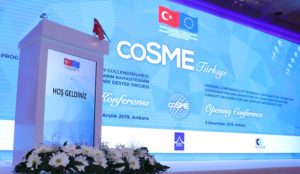
Strengthening the Internal Market
Project is comprised of six components, as follows: Component 1: Improving the strategic, legislative and institutional framework in area of Free Movement of Goods Component 2: Improving the strategic, legislative and institutional framework in area of Free Movement of Services. Component 3: Improving the legislative alignment with the

Increasing Attractiveness, Inclusiveness and Relevance of VET and Adult Education
The overall objective is to improve skill matches of youth and adults in line with labour market needs by increasing access to quality vocational education, training and adult education. The project supports the Ministry of Education and Science of the Republic of Nort Macedonia and related national educational

Monitoring Human Rights Situation and Advocating for Compliance with International Human Rights Framework
The main objective of this service contract is to strengthen Turkish civil society organisations’ role in the promotion and protection of human rights through expanded civil society monitoring and advocacy at various levels. The action will provide support to civil society organisations in order to document human rights

Increasing Competitiveness of Middle Black Sea Region TR83
Turkey’s Middle Black Sea region was set up in 2009 and is now well established; the Middle Black Sea Region Development Agency (OKA) carries out activities to support the economic and social development of Amasya, Çorum, Samsun and Tokat provinces. The main objective of this project was to

Technical Assistance for Promotion of Life Long Learning (LLL)
Experts say that education is a life-long journey, and there is a need to promote the development and implementation of coherent and comprehensive strategies for life-long learning. In this regard, this project aimed to establish an institutional framework and capacity within LLL perspectives in line with EU practices

Technical Assistance for Enhancing Coordination and Promotion of the COSME Programme and Capacity Building for SME Support Infrastructure
The main objective of this contract is increasing the intermediary organisations and SMEs’ knowledge on COSME (Competitiveness of Enterprises and Small and Medium-sized Enterprises) and to enhance the coordination capacity in the country for effective participation in the programme and the Small Business Act (SBA) framework.

